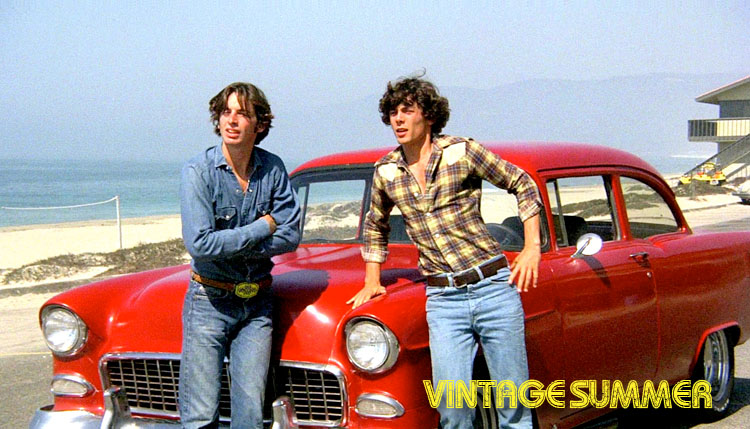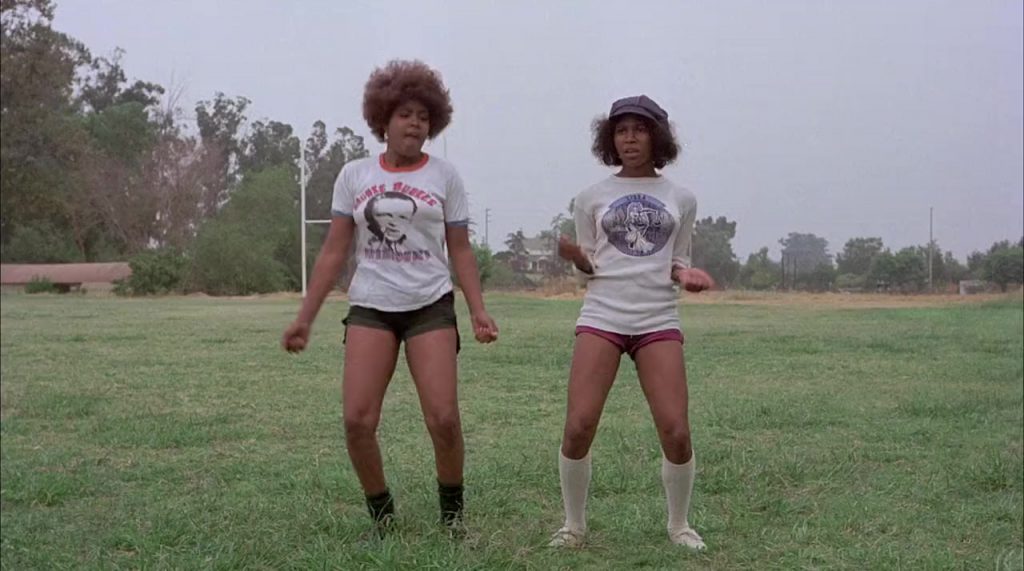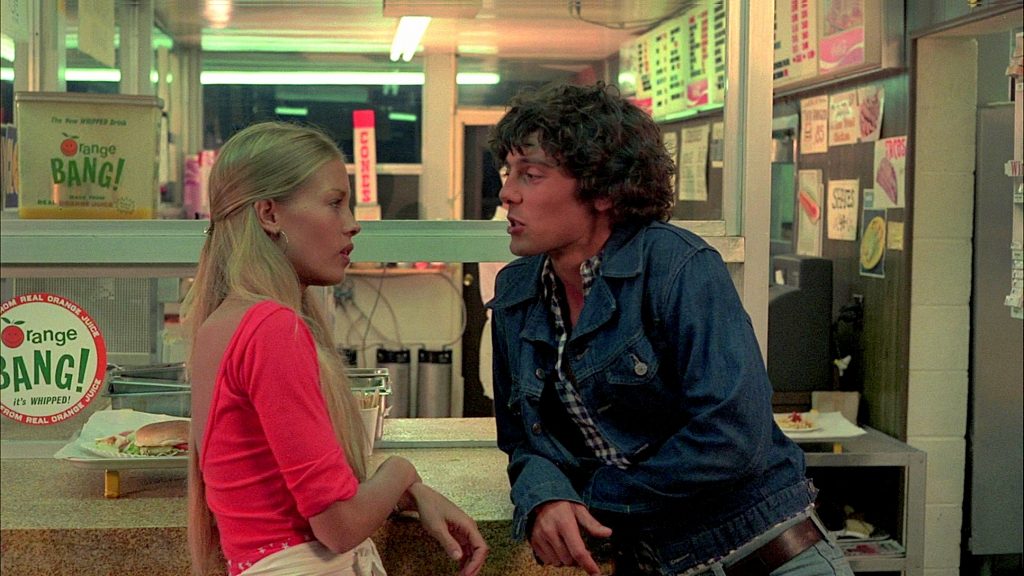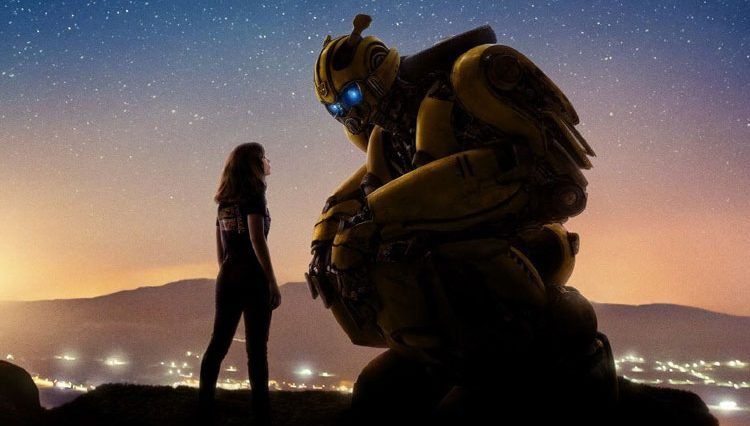
“Who the hell do you think you are, James Dean?”
The Pom Pom Girls, 1976 (Robert Carradine), Crown International Pictures
Southern California “car culture” in 1976 was a different beast than what we see today. The parking lots of The Pom Pom Girls are a mish-mash; a schizophrenic hodge-podge of all kinds of vehicles: slug bugs, flat tops and “landau” roofs dominated the asphalt landscape. The Pom Pom Girls is an end-of-summer movie with the furiously impatient kids at Rosedale High gearing up for another school year and getting ready for the “big game” (there’s always a “big game,” isn’t there?) with their blood rivals at Hardin High. The requisite religious rituals involve hanging football player mannequins in effigy and cheerleader auditions (not the sexy kind, just interesting).
There’s a lot of faces on display in this movie that don’t immediately scream, “ACTOR!” with the exception of perhaps Robert Carradine (in his first starring role) and the beautiful Jennifer Ashley (who I remember from an episode of Planet of the Apes in 1974). I had a conversation with an actress friend of mine a while back about how actors look “too perfect” (with perfect teeth and perfect faces) these days compared to actors working forty or fifty years ago, and she was right. There’s a bizarre, body snatchers-like uniformity to how people in current entertainment look.

Carradine’s hellion Johnnie likes to cause trouble, particularly for Hardin High, getting into fisticuffs with jocks, or spray-painting epithets on Hardin students’ cars. The Hardin students retaliate in kind, but that only leads to more trouble, but they are supposed to be stupid kids, right? Johnnie hijacks a fire truck and hoses down the opposing team on their field. I wonder if this will be a war of escalation. When the Principal asks the assembled kids who was responsible for stealing (and then abandoning) the fire truck, there’s a nice Spartacus moment where they all step forward. Johnnie tools around with best friend, star football player Jesse (Michael Mullins), and cheerleaders Ashley and another girl, Sally.
It seems the movie is trying to get to the heart of why the unusually limber Carradine and the mercurial Mullins act out the way they do. I’m curious about that myself. They seem insanely angry to me, getting into violent fist-fights and behaving as though their respective ids have complete control over their minds. They don’t seem to have any concerned family hovering about. Maybe they don’t know what to do with their lives. All these kids will be graduating and becoming stock-boys, accountants, administrative assistants, or low-level drug dealers. It’s a big world out there, full of opportunities.

When Ashley catches Jesse cheating (out of the back of his van, which is facing the classroom window no less) she tries to engage him and talk to him, but his attitude toward her cools. When she spurns him, he grabs her and kisses her. He buys her an ice cream and then everything’s alright. That’s an interesting twist. Especially in light of the fact I didn’t even know these crazy kids were serious about each other. I mean, nobody’s serious about anything in The Pom Pom Girls. It’s a movie about youthful rebellion and a mockery of “authority figures.” Perhaps the central thesis of the movie is that all men are insane everywhere (notice how we’re not being lectured to), but there is great ambiance, handled deftly by co-writer/director Joseph Ruben who would go on to become a premier exploitation director in the ’80s and ’90s with movies like The Stepfather, Sleeping with the Enemy, and The Good Son.
The big game turns into a big fight between players and cheerleaders. It’s kind of funny when you consider cheerleaders beating the holy hell out of one another. It’s refreshing to see a movie about interesting characters that aren’t perfect. For all their faults, you still care about these people. The Pom Pom Girls is one of a few movies to exist in both “R’ and “PG” versions with standalone, easily excisable scenes of nudity and adult language. It’s a surprisingly well-made, well-acted movie with a great soundtrack, and a great son-of-a-bitch ending*.
*The son-of-a-bitch ending, as described by my friend and colleague, David B. Anderson, is when a movie ends on a note that deliberately deceives, confuses, or antagonizes the audience, and the ending in this movie is a doozy.




